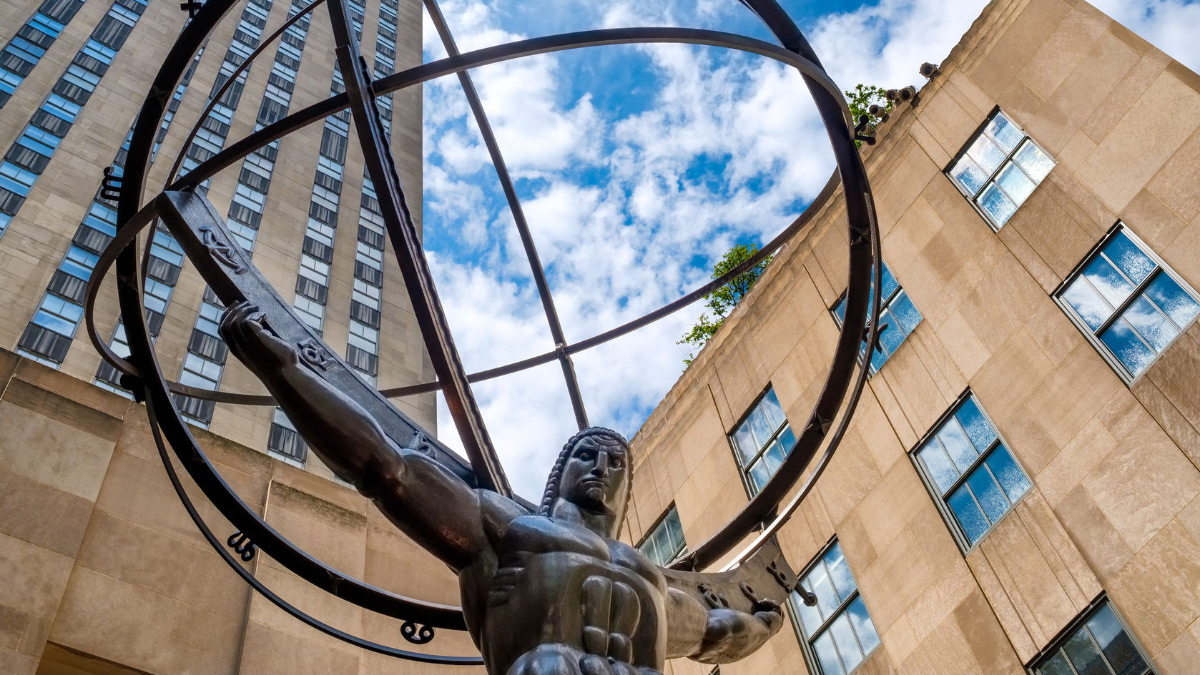The search for the Great American Novel should have ended in 1957 when a Russian immigrant named Ayn Rand published Atlas Shrugged. Arresting in its breadth, depth, and style, Atlas Shrugged is a manifesto on politics, philosophy, and economics wrapped up in a compelling narrative featuring larger-than-life (and smaller-than-life) characters.
Atlas Shrugged has shaped the worldview of many devotees of liberty, and it surged in popularity in the wake of the recent financial crisis since it became clear that the government’s response to crisis and recession would not be to learn from its mistakes and recede but to expand its reach.
I first read Atlas Shrugged during my fourth year of graduate school. On one hand, I wish I had read it much earlier. On the other, I feel like I appreciate it on a much deeper level than I would have had I read it in high school or college. Atlas Shrugged is my favorite novel for two reasons.
The first is its treatment of human potential. Atlas Shrugged is a brilliant exposition of the things that are made possible by the rational, thinking human mind. A lot of things that we take for granted are the product of free markets harnessing the power of free minds. Something as mundane as a hot cup of coffee, for example, embodies innumerable decisions by innumerable people, each with their own specialized knowledge. We see what happens throughout the book when people are unshackled and allowed to pursue their own goals. Production increases. Lives are saved. Life is meaningful.The second reason is its exploration of how a society disintegrates when we deny human nature. The great tragedy I see throughout Atlas is the tragedy of what might have been. The producers are destroyed, and their destroyers continue to be oblivious to their destruction. One of the most important principles in economics is that we rarely if ever take account of the unseen, unintended consequences of policies and actions. In several places throughout the book, Rand explores how an “emergency directive” to help someone in one part of the country leads to the ruin or suicide of a bankrupt entrepreneur in another part of the country. The book is an extended lesson in what happens when we focus only on what we see.
Atlas Shrugged confronts its reader with a difficult and uncomfortable set of moral questions. Production is the outpouring of the human mind. The mind responds to the problems presented by the physical and material environment, but without the application of intelligence, no production is possible. Life, if one would call it that, would be nasty, brutish, and short.
The most interesting moral question occurring to me as I read it concerns the unintended consequences of supposedly good intentions. The idea that we should serve one another and that we should practice love and charity is appealing (as a Christian, I think them obligatory), but these principles are often applied in an almost strictly superficial sense.
Atlas traces the unseen, unintended consequences of so-called “good intentions.” Henry Rearden, for example, points out that he cannot use his suppliers’ good intentions to fuel his blast furnaces. When I board an airplane or get behind the wheel of a car, I like to think that the governing principles are not charity and sincerity but excellence and fidelity. If I have to have my brakes fixed, I care only about whether the person doing the work is honest and competent; I don’t care a wit for whether he means well. His intelligence and his fidelity, not his intentions and his sincerity, are what will slow my car when I am hurtling down the freeway at sixty or seventy miles per hour. Well-meaning incompetence poses a danger to me and to those around me.
Recent events—the bizarro circus that is the 2016 election, the disintegration of Venezuela, and so on make me wonder if a lot of this could have been avoided had we taken Atlas Shrugged’s message to heart. It is a book that is worth re-reading every few years. In this sense, it takes its place alongside books like 1984 as 20th-century cautionary tales that teach lessons we ignore at our peril.









